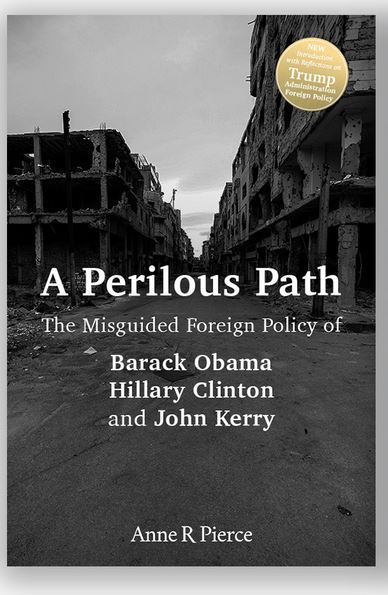Despite talk of a possible breakthrough, the latest news on Iran nuclear negotiations rings an ominous, familiar bell. Dangerous compromises have been added to dangerous compromises. New “deadlines” have surpassed old deadlines, rendering the word meaningless. Extensions of deadlines have been extended further. And Iran, not the United States and its allies, has benefited and prevailed.
The Obama administration’s dogged determination to forge an agreement with the Islamic Republic echoes its repeated, exhaustive failure to do just that. No matter how relentless Iran’s pursuit of nuclear weapons … no matter how many times Iran has refused to negotiate, lied in negotiations or changed its negotiating terms … the response of President Obama and his Secretaries of State has been to offer yet more concessions in exchange for Iran’s ever-elusive cooperation. Although the recurring assumption is that Iranian compromise lies just around the corner if only we compromise ourselves, what recurs instead is the steady progress of Iran’s nuclear program.
Rather than negotiating from strength, the United States has continually given way. The US has stopped insisting that Iran must not enrich uranium, and has dramatically raised the ceiling for the permissible number of centrifuges. It has dropped hard requirements that Iran disclose past nuclear activities and military dimensions of its nuclear program.
With recent negotiations centered on the proposal that Iran freeze (rather than halt) the program for a limited time in exchange for a lifting of economic sanctions, Iran can wait the “sunshine period” out, while using expanded funds for militant purposes. The Associated Press reported in June that, in order to sweeten the deal, the administration is even considering lifting some non-nuclear sanctions, which were instituted in response to Iran’s ballistic missiles, sponsorship of terror, money laundering and human rights violations.
In spite of all of this, and in spite of hopes that this time Iran would join the “international community” and seek peace and cooperation, Iran has stayed true to form. In the last couple weeks alone, news from Iran and from Vienna, where negotiations are taking place, has included the following: Iran rejected a deal that lifts international sanctions in stages instead of all at once or that allows inspectors access to military sites; backed away from its agreement to freeze much of its nuclear program in the next decade; insisted that the Security Council revise the resolution that bans it from mining uranium, and from producing nuclear fuel and ballistic missiles that could be used to carry an atomic bomb; and demanded that the UN lift the arms embargo that seeks to prevent Iran from aiding and arming extremists.
President Obama and his Secretaries of State are not the first to try diplomacy with Iran; they are simply the first to keep negotiating in the face of Iranian intractability and intransigence. By the end of Mr. Obama’s first term, evidence that Iran was an unreliable negotiating partner was overwhelming. Iran had agreed to negotiate only when faced with a physical threat such as an Israeli airstrike, or when fishing for economic “incentives.”
It had then failed to attend negotiations, or refused to make concessions in negotiations, or backed out of negotiations. It was clear that Iran was playing a terribly clever game, and using the negotiating process to buy time, and cover, for its nuclear plans. Secretary of Defense Robert Gates (2006-2011), who had a truer view of Iran than most in the administration, observed that “the Iranian leadership has been consistently unyielding over a very long period of time in response to repeated overtures from the United States about having a better and different kind of relationship.”
Engagement and diplomacy are indispensable tools of American foreign policy, but we are paying too little attention to the political, moral and strategic goals of American foreign policy. As it was when Fascist Germany and the Empire of Japan ascended, truth is being sacrificed on the altar of hope and fear: hope that radical regimes will be reasonable if presented with the right diplomatic openings and fear that if we “insult” hostile powers we’ll make the situation worse. Yet, the threat of a nuclear Iran is much worse than it was before President Obama and his Secretaries of State enacted their policies.
As negotiators try again to hash out a deal, it therefore behooves us to get clear answers as to what is being conceded this time. There can be no “good deal” if sanctions are lifted before Iran meets its obligations, if strict limits on uranium enrichment and centrifuges are not imposed, if ballistic missiles are not addressed, and if open inspections of nuclear and military sites are not granted.
An agreement that allows Iran to be a breakout nuclear power and that fails to consider Iran’s hostility, regional aggression, human rights violations and sponsorship of terror, would be both foolhardy and wrong.
This article was originally published at The Washington Times on July 9, 2015. Read the full article here.


